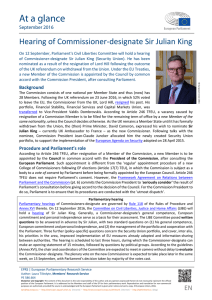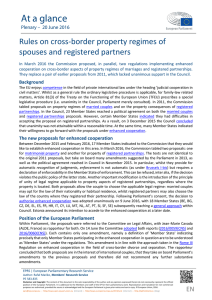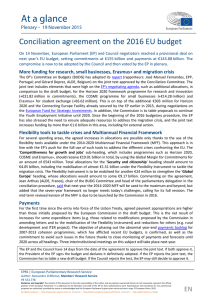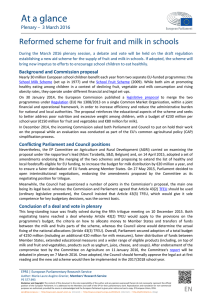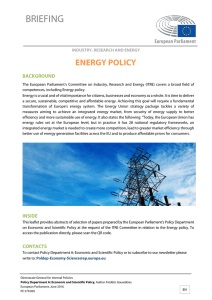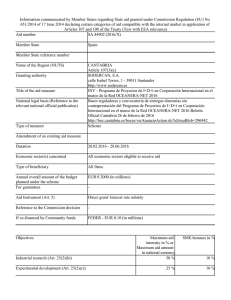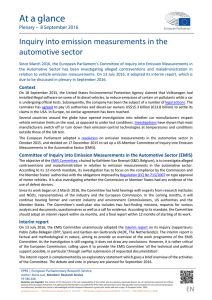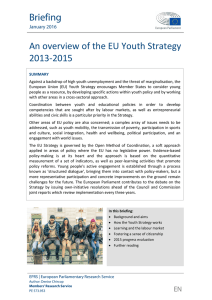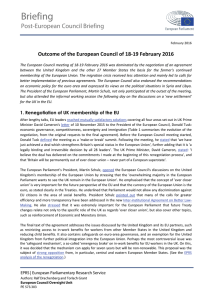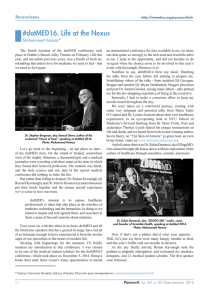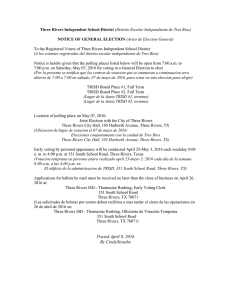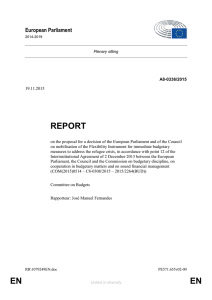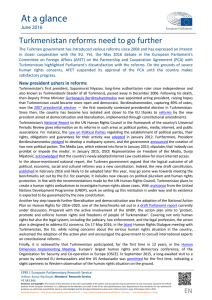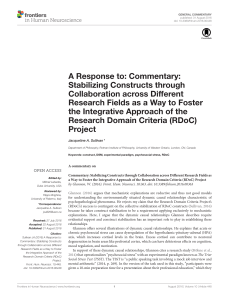Briefing European Parliamentary Research Service
Anuncio
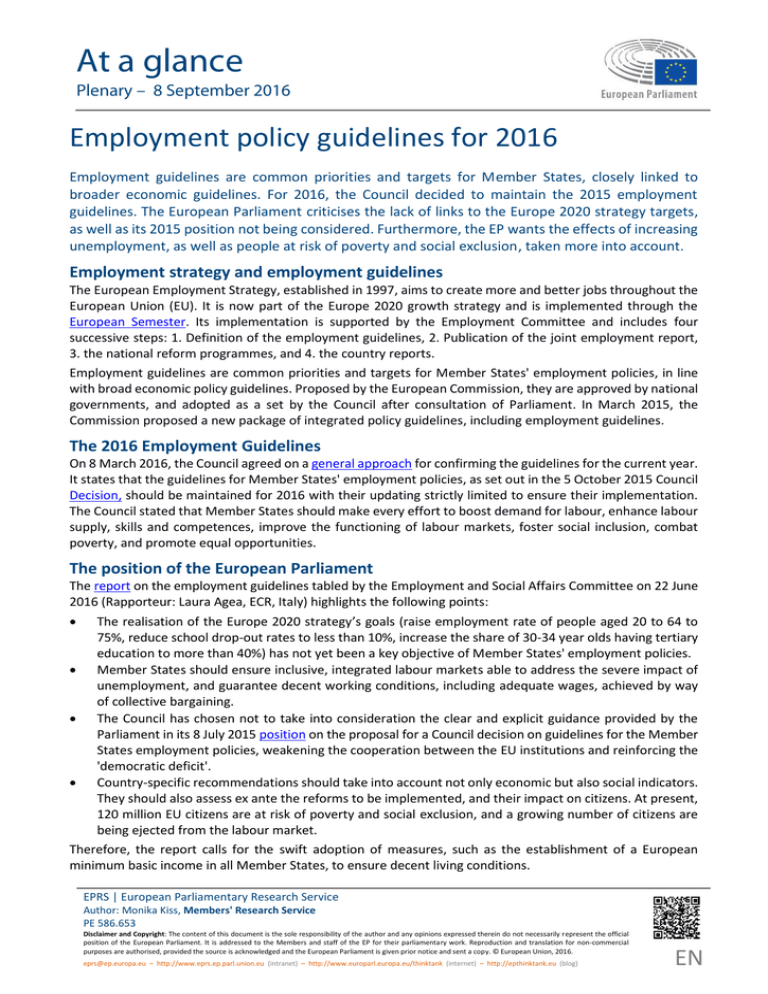
At a glance Plenary – 8 September 2016 Employment policy guidelines for 2016 Employment guidelines are common priorities and targets for Member States, closely linked to broader economic guidelines. For 2016, the Council decided to maintain the 2015 employment guidelines. The European Parliament criticises the lack of links to the Europe 2020 strategy targets, as well as its 2015 position not being considered. Furthermore, the EP wants the effects of increasing unemployment, as well as people at risk of poverty and social exclusion, taken more into account. Employment strategy and employment guidelines The European Employment Strategy, established in 1997, aims to create more and better jobs throughout the European Union (EU). It is now part of the Europe 2020 growth strategy and is implemented through the European Semester. Its implementation is supported by the Employment Committee and includes four successive steps: 1. Definition of the employment guidelines, 2. Publication of the joint employment report, 3. the national reform programmes, and 4. the country reports. Employment guidelines are common priorities and targets for Member States' employment policies, in line with broad economic policy guidelines. Proposed by the European Commission, they are approved by national governments, and adopted as a set by the Council after consultation of Parliament. In March 2015, the Commission proposed a new package of integrated policy guidelines, including employment guidelines. The 2016 Employment Guidelines On 8 March 2016, the Council agreed on a general approach for confirming the guidelines for the current year. It states that the guidelines for Member States' employment policies, as set out in the 5 October 2015 Council Decision, should be maintained for 2016 with their updating strictly limited to ensure their implementation. The Council stated that Member States should make every effort to boost demand for labour, enhance labour supply, skills and competences, improve the functioning of labour markets, foster social inclusion, combat poverty, and promote equal opportunities. The position of the European Parliament The report on the employment guidelines tabled by the Employment and Social Affairs Committee on 22 June 2016 (Rapporteur: Laura Agea, ECR, Italy) highlights the following points: The realisation of the Europe 2020 strategy’s goals (raise employment rate of people aged 20 to 64 to 75%, reduce school drop-out rates to less than 10%, increase the share of 30-34 year olds having tertiary education to more than 40%) has not yet been a key objective of Member States' employment policies. Member States should ensure inclusive, integrated labour markets able to address the severe impact of unemployment, and guarantee decent working conditions, including adequate wages, achieved by way of collective bargaining. The Council has chosen not to take into consideration the clear and explicit guidance provided by the Parliament in its 8 July 2015 position on the proposal for a Council decision on guidelines for the Member States employment policies, weakening the cooperation between the EU institutions and reinforcing the 'democratic deficit'. Country-specific recommendations should take into account not only economic but also social indicators. They should also assess ex ante the reforms to be implemented, and their impact on citizens. At present, 120 million EU citizens are at risk of poverty and social exclusion, and a growing number of citizens are being ejected from the labour market. Therefore, the report calls for the swift adoption of measures, such as the establishment of a European minimum basic income in all Member States, to ensure decent living conditions. EPRS | European Parliamentary Research Service Author: Monika Kiss, Members' Research Service PE 586.653 Disclaimer and Copyright: The content of this document is the sole responsibility of the author and any opinions expressed therein do not necessarily represent the official position of the European Parliament. It is addressed to the Members and staff of the EP for their parliamentary work. Reproduction and translation for non-commercial purposes are authorised, provided the source is acknowledged and the European Parliament is given prior notice and sent a copy. © European Union, 2016. [email protected] – http://www.eprs.ep.parl.union.eu (intranet) – http://www.europarl.europa.eu/thinktank (internet) – http://epthinktank.eu (blog) EN


